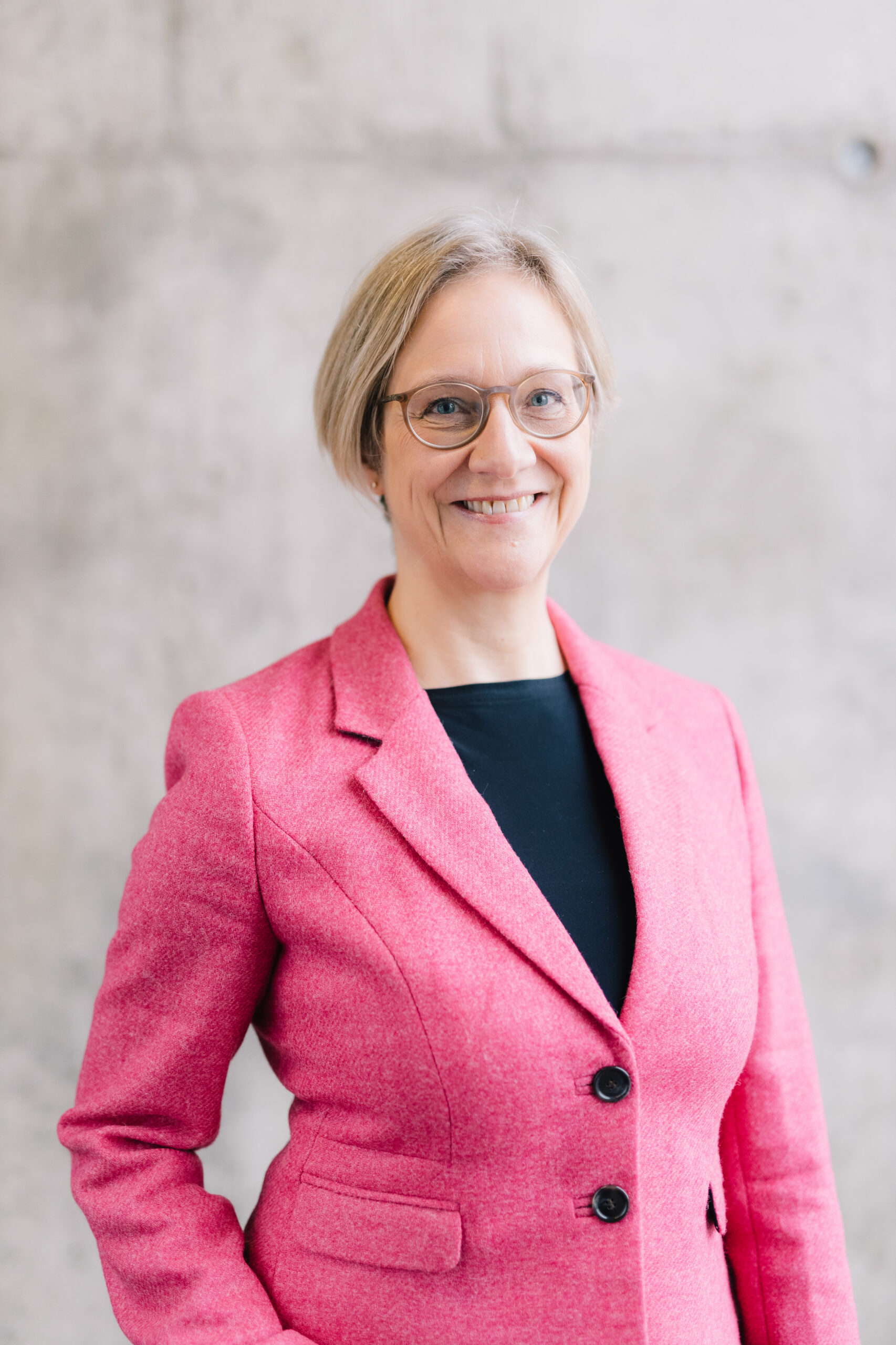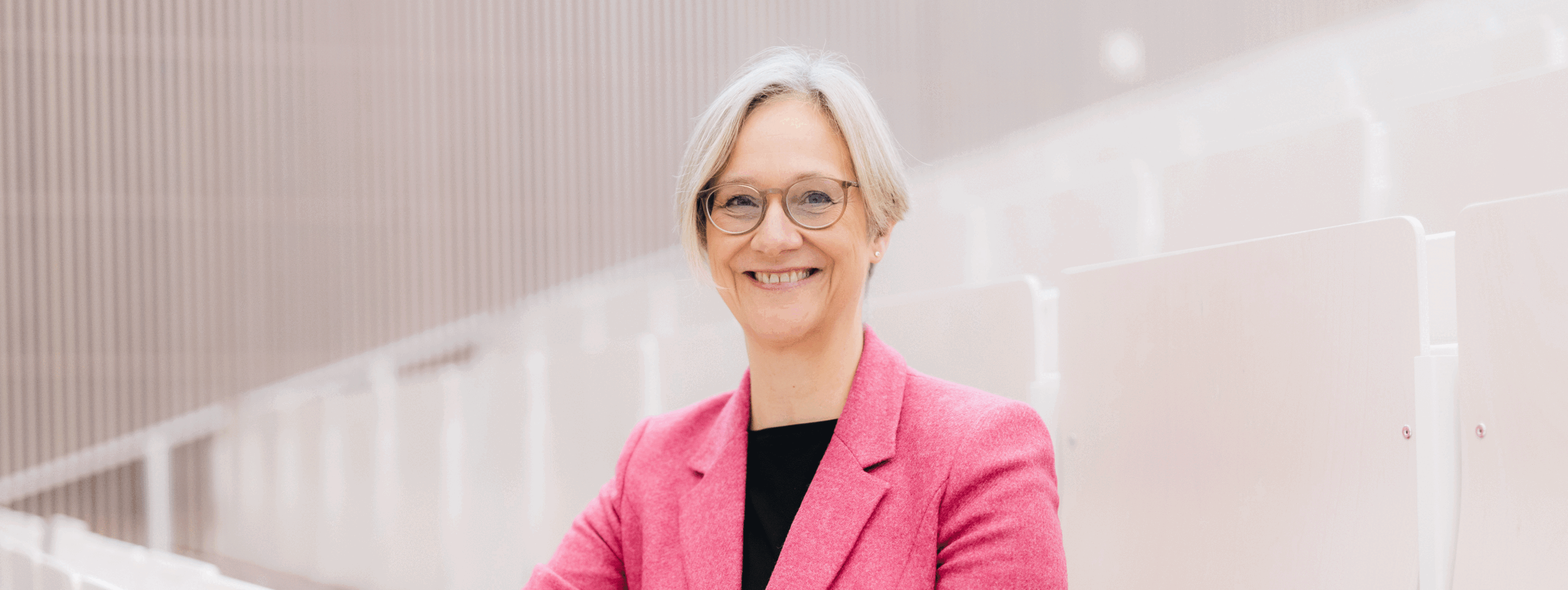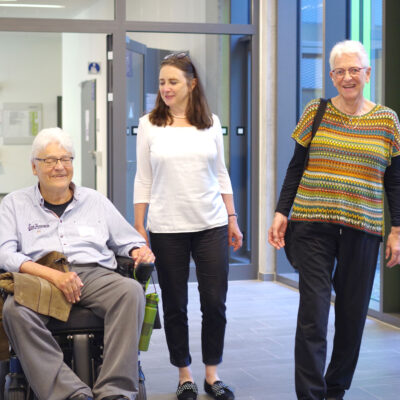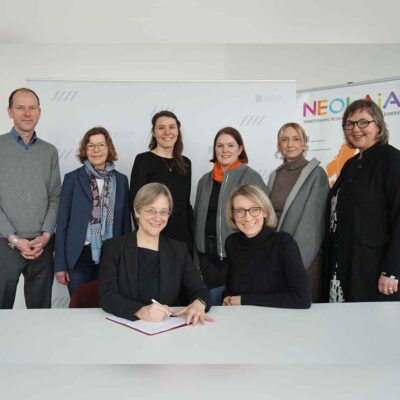Prof. Dr. Angelika Epple has been the Rector of Bielefeld Unviersity since October 1st. In an interview, the historian shares her delight to be serving as Rector and her respect for the role, before laying out the challenges ahead – and how to face them.
You have been the Rector of Bielefeld University since October 1st. How does it feel?
It feels fantastic now that it’s started. In fact, I was already elected in February. At any rate, I am also very aware of the challenges, and my respect for the task ahead is immense.
What challenges do you forsee? Will everything be different now?
I was vice-rector of the university for 8 years during Gerhard Sagerer’s tenure as rector. Given this history, there is a part of me that stands for continuity. On the other hand, the world has transformed in recent years, with the pandemic, the war in Ukraine, digitalization, and the skilled worker shortage. These are just four key words that do, however, entail massive societal changes that are also impacting us at the university. For this reason, we too must transform to tackle these challenges productively in the coming years.
What specifically are you referring to here?
I believe that the big questions facing our society will also extend to our academic system. We are competing with many other areas of society over resources, to name one example. Vigorous debates will be taking place in the political realm over where and how to spend tax-payer money. How sure can we be that funding for universities will be exempt from this? What does this mean for us? Another issue we are facing is the demographic shift, which will impact student recruitment. We will need to have good arguments at hand if we want to be able to convince prospective students to enrol at our university. The skilled worker shortage is already affecting us. If we are not perceived as being modern and forward-thinking, then we will not be able attract the most talented colleagues. Here, we need especially good answers to questions of digitalization and further development of campus facilities. My goal is that our university will be successful in spite of these challenges.
And how do you want to position Bielefeld University in this competition?
There is no one answer to this question. Positioning has different dimensions, namely internally and externally. Essentially, we want to – and have to – compete for talent and resources as described above. For this, we will need a stellar academic and scientific reputation, moreso even than in the past. I believe there is a “Bielefeld Way” to do this. We want to be forward-thinking and set clear goals that we pursue together, with transparency and tenacity. We shouldn’t only react to external demands, but also endeavor to actively direct our own course. My vision is that, based on our strengths, we should chart a path to strengthen our international reputation and thus fortify our university as a place of excellence in both research and teaching. Together with us in the Rectorate, I invite all members of the university to join us on this path and work together towards furthering Bielefeld University’s academic and scientific standing. I will soon be presenting a participatory process for this. But this is certainly not the definitive answer to these challenges…

© Bielefeld University/M. Adamski
But rather…?
Our university must be able to attract researchers from around the globe. Young people in particular should have the opportunity here in Bielefeld to try things out, to develop not just professionally, but also personally. For this, we will need a framework that fosters the space for communication, creativity, and reflection. For this, I want to make proposals and set the tone. We are planning, for instance, a “Talent Academy” to provide a broad range of offerings for various groups from research, teaching, management, and administration, and which will also help make our university an attractive place for motivated young professionals. We are educating our students for the global job market. We have international networks with ambitious and renowned partner universities. We work closely together with our partners and benefit from intensive exchange, such as the NEOLAiA Network, to name just one. We need – and want – to put an even greater emphasis on networking in the future.
The COVID-19 pandemic gave online teaching a huge boost. In the future, will teaching mostly take place online?
Our university is and will remain an in-person institution. That said, we must find a way to take advantage of the many opportunities made possible by digital formats. I would like to strengthen the laboratory character of teaching, and not just in the natural sciences, but also in the humanities and social sciences, where seminars comprise the core of instruction. Successful seminars are, for me, laboratories in which students experiment with ideas, thoughts, and theories. I also see this here as a chance to further develop our state teacher-training program. Students need the space to try things out, to discuss, to even fail now and again, and, eventually, to come to conclusions together – on site at the university. This is how we will prepare students for the future.
On September 29th, the University Electoral Committee elected the vice-rectors. What does this Rectorate have in store for us?
I consider the Rectorate a team that stands for enthusiasm in our work, a sense of responsibility in the face of great challenges, and – very importantly – a communicative and participatory approach towards tackling these challenges. I am pleased with the composition of the team, with the mix of experience, innovation, strength in communication, creativity, networking, and the different disciplines represented. We are a very diverse group, and this is what makes us strong.
How would you describe your leadership style?
Participation, transparency, and trust-based decision-making: these are the principles upon which my leadership style is based. I want to be communicative, approachable, and open in my interaction with members of the university – with researchers, staff members in technical services and administration, as well as students.
In virtually every German university, including ours here in Bielefeld, the relationship between academics/research and administration/services is frequently the subject of critical discussion. How do you see this?
Excellence in research and high-quality teaching require a functional administrative back-end and specially tailored services. We cannot understimate the demands that are placed on our administration and service units, whether from digitization, the renovation of the Main University Building, the construction for the Faculty of Medicine, or cyber security. There are constantly new external demands placed on university administration and services from us researchers, but also from politics, funding bodies, and governmental ministries. In this respect, such criticism often goes a step too far. Then again, researchers should of course expect a friendly and open culture of service. The support services, under the leadership of the Chancellor, have accepted this challenge. A lot has been happening here. I think we need to look more often at our shared successes. There are indeed examples of successful cooperation. But even when we fail, we fail together and must learn from this – together – for the future. As Rector, I want to work towards strengthening the framework conditions for a culture that openly acknowledges its mistakes so that we can more successfully – and courageously – pursue our goals together.
What role do you see Bielefeld University playing for the city and the region?
With its appealing programs of study, the university attracts highly motivated young people from around the globe to Bielefeld. This makes the city and region more international, diverse, and well-equipped for the future. This is also reflected in the urban landscape: Bielefeld is a young city. The working professionals of the future are studying at the university. Accordingly, our university is a key player and flagship institution. We take on the responsibility to meet societal challenges – the OWL Faculty of Medicine is surely one of the most prominent examples here. I’d also mention here our extensive activities in the expansion of our teacher training programs and in the field of psychotherapy. The university also has strong partnerships with private industry in research and development. BRIC GmbH and “it’s owl” (Intelligent Technical Systems OstWestfalenLippe Leading-Edge Cluster) are notable examples in this context. We are on a good path here, and will stay the course. I would also like to strengthen the university’s dialogue with the public. Only if we listen will we be able to influence societal developments. We shouldn’t be seen as an ivory tower. To this point, I’m really excited to see what opportunities the “WissensWerkstadt”, which is currently being built in downtown Bielefeld, will hold for us.
When you look back on your tenure as Rector six years from now, what would you like to have accomplished by then?
Bielefeld University has succeeded in developing a distinctive reputation that has enhanced its visbility and made it competitive with other universities. Researchers, especially those who are young and international, are excited to join us here in Bielefeld because we provide excellent resources, facilities, and support for their innovative and interdisciplinary research. Bielefeld University is an in-person institution, but takes advantage of the opportunities and possibilities foreclosed by digitalization. Prospective students choose us for our extensive course offerings, the caliber of our teaching, and our innovative environment for learning and studying. The city and the region are proud of Bielefeld University and our contributions to societal development. The “Bielefeld Way” has been a success.





